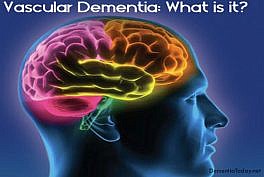Wernicke-Korsakoff syndrome

Korsakoff syndrome is a chronic memory disorder caused by severe deficiency of thiamine (vitamin B-1). Korsakoff syndrome is most commonly caused by alcohol misuse, but certain other conditions also can cause the syndrome.
About Korsakoff Syndrome
Thiamine (vitamin B-1) helps brain cells produce energy from sugar. When levels fall too low, brain cells cannot generate enough energy to function properly. As a result, Korsakoff syndrome may develop.
Korsakoff syndrome is most commonly caused by alcohol misuse, but can also be associated with AIDS, chronic infections, poor nutrition and certain other conditions. See causes and risks below.
Korsakoff syndrome is often, but not always, preceded by an episode of Wernicke encephalopathy, which is an acute brain reaction to severe lack of thiamine. Wernicke encephalopathy is a medical emergency that causes life-threatening brain disruption, confusion, staggering and stumbling, lack of coordination, and abnormal involuntary eye movements.
Because the chronic memory loss of Korsakoff syndrome often follows an episode of Wernicke encephalopathy, the chronic disorder is sometimes known as Wernicke-Korsakoff syndrome. But Korsakoff syndrome can also develop in individuals who have not had a prior episode of Wernicke encephalopathy.
Symptoms
Korsakoff syndrome causes problems learning new information, inability to remember recent events and long-term memory gaps. Memory problems may be strikingly severe while other thinking and social skills are relatively unaffected. For example, individuals may seem able to carry on a coherent conversation, but moments later be unable to recall that the conversation took place or to whom they spoke.
Alcohol misuse and cognitive decline
Alcohol misuse also may lead to brain damage through:
The toxic effects of alcohol on brain cells
The biological stress of repeated intoxication and withdrawal
Alcohol-related cerebrovascular disease
Head injuries from falls sustained when inebriated.
Those with Korsakoff syndrome may “confabulate,” or make up, information they can’t remember. They are not “lying” but may actually believe their invented explanations. Scientists don’t yet understand why Korsakoff syndrome may cause confabulation.
Diagnosis
Korsakoff syndrome is a clinical diagnosis representing a physician’s best judgment about the cause of a person’s symptoms. There are no specific lab tests or brain scan procedures to confirm that a person has this disorder. The syndrome may sometimes be hard to identify because it may be masked by symptoms of other conditions common among those who misuse alcohol, including intoxication or withdrawal, infection or head injury.
When persistent learning and memory deficits are present in patients with Wernicke encephalopathy (a clinical triad of confusion, ataxia, and nystagmus [or ophthalmoplegia]), the symptom complex is often called Wernicke-Korsakoff syndrome. Clinically, this term is best conceptualized as 2 distinct syndromes, with one being characterized by an acute/subacute confusional state and often reversible findings of Wernicke encephalopathy and the other by persistent and irreversible findings of Korsakoff dementia.
In 1881, Carl Wernicke first described an illness that consisted of paralysis of eye movements, ataxia, and mental confusion, in 3 patients. The patients, 2 males with alcoholism and a female with persistent vomiting following sulfuric acid ingestion, exhibited these findings, developed coma, and eventually died. On autopsy, Wernicke detected punctate hemorrhages affecting the gray matter around the third and fourth ventricles and aqueduct of Sylvius. He felt these to be inflammatory and therefore named the disease polioencephalitis hemorrhagica superioris.
SS Korsakoff, a Russian psychiatrist, described the disturbance of memory in the course of long-term alcoholism in a series of articles from 1887-1891. He termed this syndrome psychosis polyneuritica, believing that these typical memory deficits, in conjunction with polyneuropathy, represented different facets of the same disease. In 1897, Murawieff first postulated that a single etiology was responsible for both syndromes.
Experts recommend that a medical workup for memory loss or other cognitive changes always include questions about an individual’s alcohol use. Anyone admitted to the hospital for an alcohol-related condition should be professionally screened for memory loss and cognitive change.
A recent report commissioned by the Alzheimer’s Society, and carried out by academics at the London School of Economics and the Institute of Psychiatry at King’s College London, estimated that there are now almost 700,000 people with dementia in the United Kingdom, representing 1.1% of the entire population and a cost of ?17 billion per year (Alzheimer’s Society, 2007). The report focused on three main dementia subtypes: Alzheimer’s disease (AD) accounting for two-thirds of all cases; and vascular dementia and mixed dementia, together accounting for nearly one-third of cases. Alcohol-related brain damage or dementia, which may contribute to between 10% and 24% of all cases of dementia, was not considered separately (Smith and Kiloh, 1981; Smith and Atkinson, 1995; Gupta and Warner, 2008).
The mechanisms underlying alcohol-related brain damage or dementia are many and varied and include the direct neurotoxic effects of alcohol and its metabolite, acetaldehyde, thiamine depletion, metabolic factors resulting from intoxication and withdrawal syndromes, cerebrovascular disease, hepatic encephalopathy, alcohol-related physical complications and head injury. Per capita alcohol consumption in England increased by 60% between 1970 and 2006 and this has led to a rapid rise in alcohol harms (DH, 2008). Alcohol contributes to 4.4% of the global burden of disease expressed in disability-adjusted life years lost (DALYS); neuropsychiatric disorders constitute the category with the highest alcohol-attributable burden (WHO, 2007). It is therefore likely that prevalence rates of alcohol-related brain damage are currently underestimated and may rise in future (heavier drinking) generations.
In this paper, we consider one category of alcohol-related brain damage, the Wernicke – Korsakoff syndrome, and detail its clinical characteristics, neurochemistry and genetics, neuropathology and neuropsychology, assessment and management. Because it is a preventable disorder, we also discuss prophylaxis in some detail.
###
Michael D. Kopelman,
Allan D. Thomson,
Irene Guerrini and
E. Jane Marshall
Causes and risks
Scientists don’t yet know exactly how Korsakoff syndrome damages the brain. Research has shown that severe thiamine deficiency disrupts several biochemicals that play key roles in carrying signals among brain cells and in storing and retrieving memories. These disruptions destroy brain cells and cause widespread microscopic bleeding and scar tissue.
Most cases of Korsakoff syndrome result from alcohol misuse. Scientists don’t yet know why heavy drinking causes severe thiamine deficiency in some alcoholics, while others may be affected primarily by alcohol’s effects on the liver, stomach, heart, intestines or other body systems.
Researchers have identified several genetic variations that may increase susceptibility to Korsakoff syndrome. Poor nutrition also may raise risk. Sign up for our enews to receive updates about Alzheimer’s and dementia care and research.
Korsakoff syndrome also can be caused by anorexia, overly-stringent dieting, fasting, starvation or weight-loss surgery; uncontrolled vomiting; AIDS; kidney dialysis; chronic infection; or cancer that has spread throughout the body.
Treatment and outcomes
Some experts recommend that heavy drinkers and others at risk of thiamine deficiency take oral supplements of thiamine and other vitamins under their doctor’s supervision.
Many experts also recommend that anyone with a history of heavy alcohol use who experiences symptoms associated with Wernicke encephalopathy be given injectable thiamine until the clinical picture grows clearer.
Outcomes
Wernicke encephalopathy, a related disorder that sometimes precedes Korsakoff syndrome, is a
medical emergency. Untreated, it causes death in up to 20 percent of cases and progresses to
Korsakoff syndrome in 85 percent of survivors. Abnormal eye movements that occur in
Wernicke encephalopathy may respond to injectable thiamine within a few days. Lack of
coordination and clumsiness may begin to improve after about a week but may take several
months to clear up completely. Confusion also takes several months to clear up. As confusion
clears, the severe memory problems associated with Korsakoff syndrome may become more
noticeable.
In those who develop Korsakoff syndrome, with or without a preceding episode of Wernicke
encephalopathy, there are few studies on long-term outcomes. Available data suggest that
about 25 percent of those who develop Korsakoff syndrome eventually recover, about half
improve but don’t recover completely, and about 25 percent remain unchanged. Some
research suggests that those who recover from an episode may have a normal life expectancy if
they abstain from alcohol.
Treatment
Some experts recommend that heavy drinkers and others at risk of thiamine deficiency take
oral supplements of thiamine and other vitamins under their doctor’s supervision.
Many experts also recommend that anyone with a history of heavy alcohol use who
experiences symptoms associated with Wernicke encephalopathy, including acute confusion,
prolonged nausea and vomiting, unusual fatigue or weakness, or low body temperature or
blood pressure, be given injectable thiamine until the clinical picture grows clearer.
Once acute symptoms improve, individuals should be carefully evaluated to determine if their
medical history, alcohol use and pattern of memory problems may be consistent with
Korsakoff syndrome. For those who develop Korsakoff syndrome, extended treatment with
oral thiamine, other vitamins and magnesium may increase chances of symptom improvement.
Abstaining from alcohol is a cornerstone of effective long-term treatment. Those with
Korsakoff syndrome have a reduced tolerance for alcohol and may be at high risk for further
alcohol-related health problems.
Once acute symptoms improve, individuals should be carefully evaluated to determine if their medical history, alcohol use and pattern of memory problems may be consistent with Korsakoff syndrome. For those who develop Korsakoff syndrome, extended treatment with oral thiamine, other vitamins and magnesium may increase chances of symptom improvement. Giving up alcohol is also an effective treatment.
Korsakoff’s amnesic syndrome
Korsakoff’s amnesic syndrome is a memory disorder that also results from a deficiency of thiamine. It is associated with alcoholism. The heart, vascular, and nervous system are involved.
In those who develop Korsakoff syndrome, with or without a preceding episode of Wernicke encephalopathy, there are few studies on long-term outcomes. Available data suggest that about 25 percent of those who develop Korsakoff syndrome eventually recover, about half improve but don’t recover completely, and about 25 percent remain unchanged. Some research suggests that those who recover from an episode may have a normal life expectancy if they abstain from alcohol.
###
Source: National Institute for Neurological Disorders and Stroke






